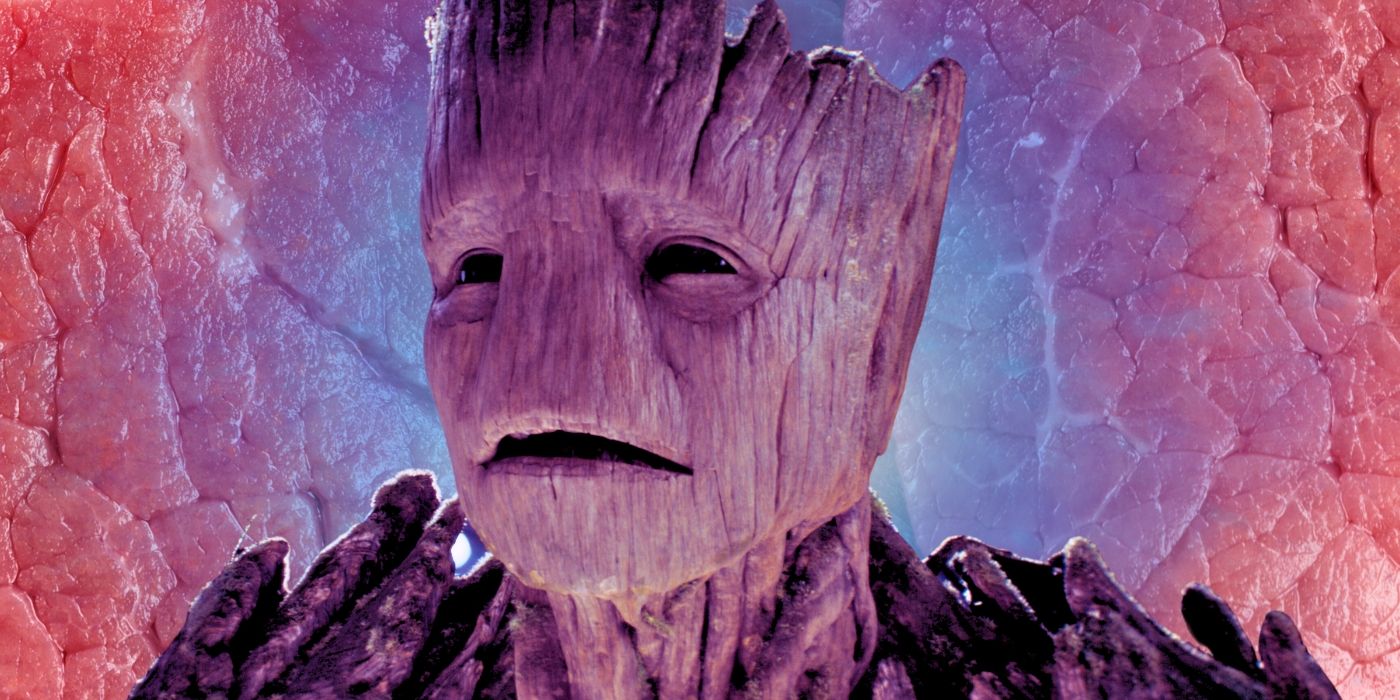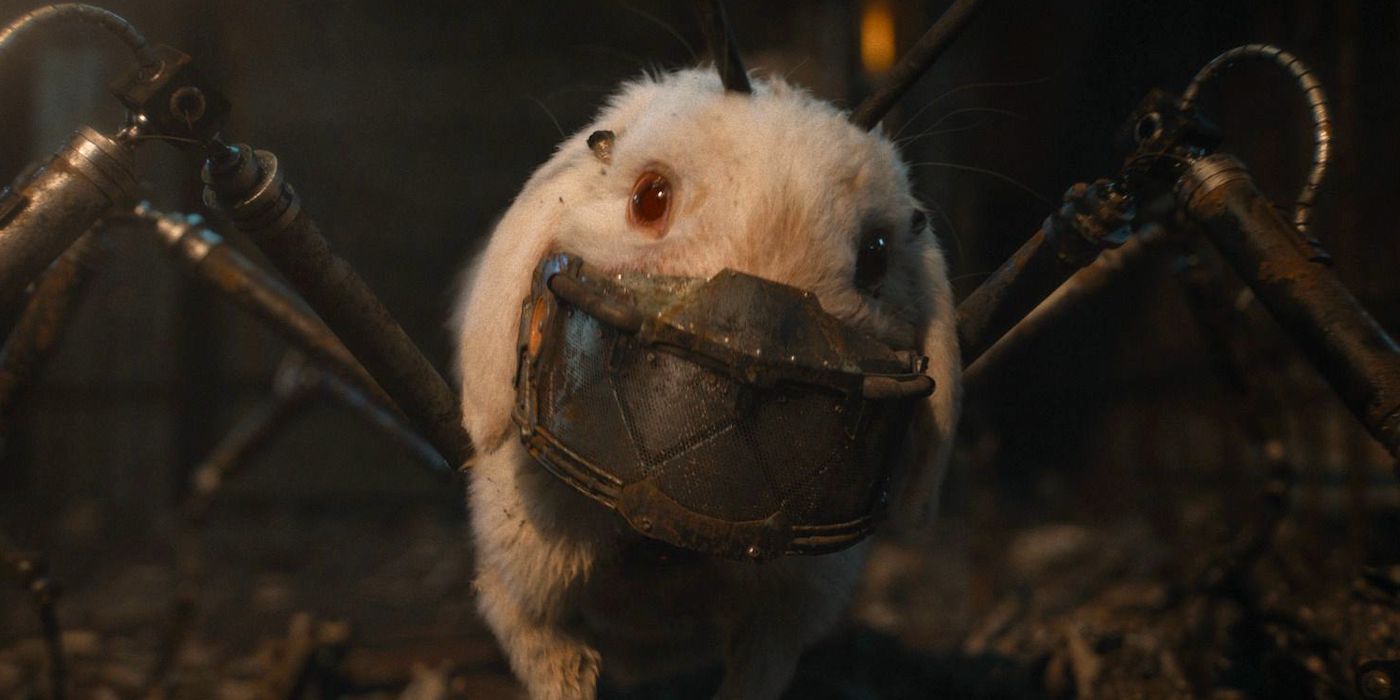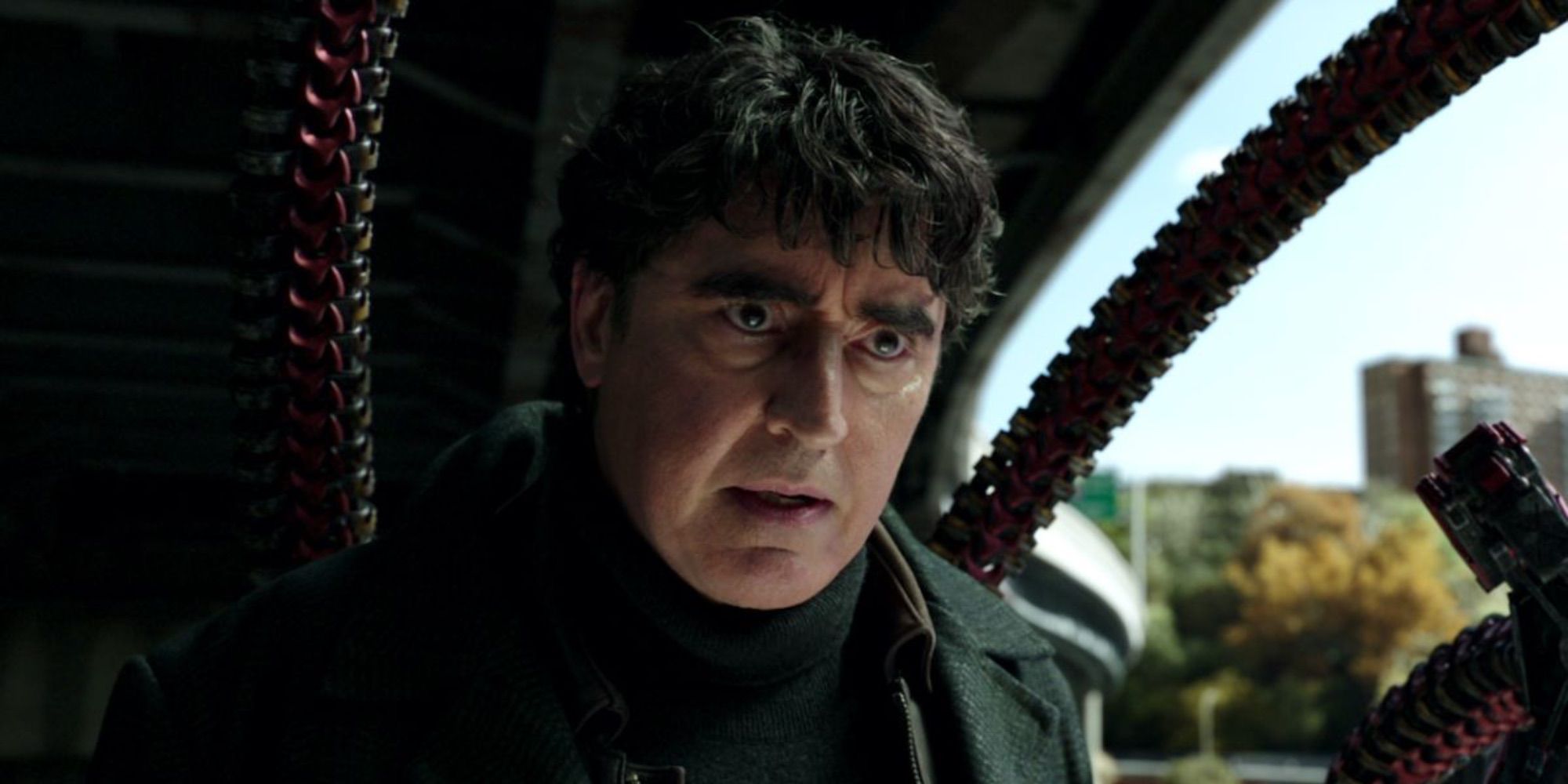Editor's Note: The following contains spoilers for 'Guardians of the Galaxy Vol. 3'Frankly, gruesome body horror was the last thing we expected to see in Guardians of the Galaxy Vol. 3, yet we get so much of it in the third film in the trilogy that it easily makes it one of Marvel's scariest films.
Most Marvel fans likely think of the Guardians of the Galaxy franchise as one of Marvel's funniest, with the banter between the various members of the titular team becoming legendary. The humorous tone makes sense for a film series that's central characters include a talking raccoon and a humanoid tree. Still, the Guardians of the Galaxy films are also not afraid to tug at audience members' heartstrings. Peter Quill (Chris Pratt) watching his mother succumb to cancer and Yondu (Michael Rooker) sacrificing himself to save Peter are just a few examples of how serious the franchise is willing to go despite its humorous tone.
That all being said, neither of the past two Guardians of the Galaxy is even close to as dark as Guardians of the Galaxy Vol. 3. Writer and director James Gunn pulled no punches for his third and final Marvel film. It's abundantly clear that Gunn decided to return to his horror roots when tackling Rocket Raccoon's (Bradley Cooper) deeply unsettling backstory. As the filmmaker did with his feature debut, Slither, Gunn develops that unsettling tone through some incredibly effective body horror elements, making for sequences so scary that Guardians of the Galaxy Vol. 3 could almost be considered a horror film.
The Guardians of the Galaxy franchise has looked at the horrors of unwanted body modification before. The character of Nebula (Karen Gillan), the one-time villain and daughter of Thanos (Josh Brolin), repeatedly reminds her teammates that her father turning her into something that is more woman than machine is something she would take back in a heartbeat. Her difficult past is probably why Nebula has such a deep connection with Rocket, but even she couldn't imagine the horrors of what he had to go through.
Rocket and His Cellmates Are Turned Into Cyborgs Against Their Will
The man responsible for most of the gruesome events of Guardians of the Galaxy Vol. 3 is the notorious High Evolutionary (Chukwudi Iwuji) - a deranged scientist obsessed with developing the perfect organism. That obsession is what led to him capturing some of Earth's creatures to experiment on, giving them sentience and mechanical body parts. Rocket is one of those unlucky animals, and the few sequences we see of him getting his cybernetic "enhancements" show an innocent, confused, and scared baby raccoon who just wants to find safety.
Inflicting pain on a defenseless animal is already a monstrous act, but then giving that animal the mental capacity to understand that pain is pure unadulterated evil. After suddenly being given sentience, baby Rocket is thrown in a cage with fresh scars. Rocket's first word simply being "Hurt" is perhaps the most effectively heartbreaking line of dialogue in the entire Marvel Cinematic Universe. This is a living organism that has just been given the ability to think and speak, and literally, the only thing he currently knows is pain.
Fortunately, Rocket has a supportive group of fellow prisoners to help him through this challenging transition. Those friends are Lylla (Linda Cardellini), an otter with mechanical arms and hands, Teefs (Asim Chaudhry), a walrus with a mechanized wheelchair, and Floor (Mikaela Hoover), a rabbit with a spider-like exoskeleton. Even more defenseless animals have been completely changed just to suit the wants and desires of an insane tyrant.
When we, as humans, look at animals, we perceive them as beings of pure innocence. Saying they don't have the amenities that people take for granted, like complex thought and the ability to speak, might sound like a significant detriment, but that blissful ignorance shields animals from grim existentialism. Again, willingly harming an animal for any reason is reprehensible, but harming an animal and giving said animal the capacity to think about that pain is unforgivable. Physical anguish is obviously horrible, but mental harm can be just as painful if not even more so.
Marvel Films Have Tried to Incorporate Horror Elements in the Past
Marvel is certainly no stranger to incorporating elements of horror within even its most family-friendly films. One could even argue it's in the franchise's roots, as the vampire hunter Blade was one of the earliest Marvel characters to get a feature film series. With blood-sucking vampires as the central character and with the first two entries being rated R, the Blade films incorporate plenty of disturbing characters and monstrous foes for Blade (Wesley Snipes) to face off against. Admittedly, the three films in the trilogy do primarily focus on action rather than scares (which is true for pretty much all of the films mentioned here).
Sam Raimi's Spider-Man trilogy also occasionally drew on the legendary filmmaker's horror roots. Norman Osborn's (Willem Dafoe) Jekyll and Hyde-like transformation into the Green Goblin and Eddie Brock's (Topher Grace) succumbing to the Venom symbiote all feel like the introduction of a classic horror movie monster. However, the most infamous case of this is certainly the scene in Spider-Man 2 when a group of ER doctors tries to remove the mechanical arms from Dr. Otto Octavius (Alfred Molina). The arms retaliate and slaughter the innocent doctors with prejudice, dragging some into the shadows to do the unthinkable. One doctor even picks up a chainsaw in a clear nod to Sam Raimi's Evil Dead series.
The early X-Men films also played around with disturbing imagery and subject matters. That's especially true for body horror, with both Wolverine (Hugh Jackman) and Deadpool (Ryan Reynolds) subjected to mutant experimentation that leaves mental scars on both beloved heroes. We also got a film explicitly billed as a horror film with The New Mutants, but the fact that we can barely remember that movie existed shows how well that went.
'Doctor Strange in the Multiverse of Madness' Is the MCU's Only True Horror Movie
As for the MCU, the only film that could really be considered a tried and true horror film is Doctor Strange in the Multiverse of Madness, with the sequel even being called a horror film by Marvel Studios President Kevin Feige when it was announced. That tone certainly comes across, as Wanda Maximoff's (Elizabeth Olsen) unhinged quest to revive her imaginary children turning her into the effectively horrifying Scarlet Witch.
With the MCU set to bring one of their earliest cinematic characters to the big screen again with Mahershala Ali's upcoming Blade reboot, Guardians of the Galaxy Vol. 3's insistence on freaky imagery and horror elements could be a great sign for those wanting the vampire film to be less funny and more scary.
Guardians of the Galaxy Vol. 3 is out in theaters now.




.jpg)